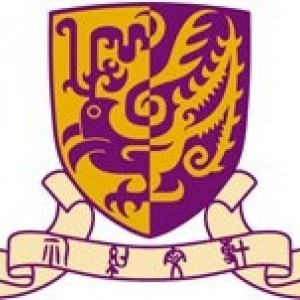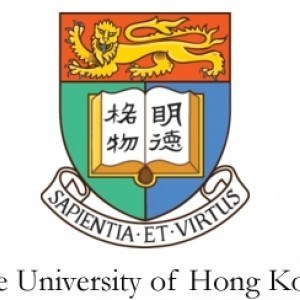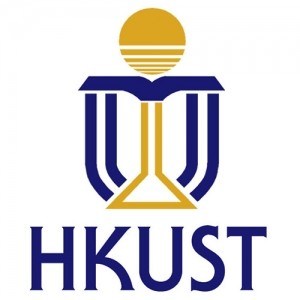Photos of university / #thechineseuniversityofhongkong
The Bachelor of Arts in Communication at The Chinese University of Hong Kong is a comprehensive undergraduate program designed to equip students with theoretical knowledge and practical skills essential for understanding and engaging in the dynamic field of communication. This program emphasizes the development of critical thinking, analytical abilities, and effective communication skills across various media platforms, preparing graduates for diverse careers in media, public relations, advertising, corporate communication, and other related fields. Students will explore core areas such as media studies, journalism, interpersonal communication, organizational communication, and digital media. The curriculum integrates both foundational theories and contemporary practices, ensuring that students are well-versed in the latest developments in the industry. Through a combination of lectures, workshops, internships, and research projects, students gain hands-on experience and insights into how communication impacts society and organizations. The program also encourages students to understand cultural, social, and ethical issues related to media practices, fostering responsible and informed communication professionals. With access to state-of-the-art facilities and collaboration with local and international media organizations, students are prepared to meet the challenges of an increasingly interconnected world. Graduates from the Communication program are equipped to pursue careers in media production, marketing, corporate communications, academia, or to continue their education through postgraduate studies. The Chinese University of Hong Kong’s Bachelor of Arts in Communication aims to develop versatile graduates capable of contributing meaningfully to the evolving landscape of communication in Hong Kong, Asia, and beyond.
Course List
The course list is only a list of courses recognized by the Division as credit bearing which can be counted towards the degree, and not every course on the list are opened to all students and offered every year. Students should refer to individual programme timetables for courses offered to students of different programmes every year.
- Topical Studies in Communication I, II, lll, IV
- Globalization and Communication
- Political Communication
- Communication Theories
- Seminar on Thesis Development
- Statistical Analysis in Communication
- Quantitative Communication Research
- Qualitative Communication Research
- Strategic Analysis of Media Industries
- Communicating with Consumer Publics
- Public Relations for Risk Industries
- Public Relations Writing
- Public Relations Campaigns and Cases
- Investor Relations
- Media Management
- Media Economics
- Applied Communication Research
- Crisis Management
- Corporate Communication
- Topical Studies in Corporate Communication l, ll, lll, IV, V
- Interpersonal and Group Communication
- Strategic Public Relations in Greater China
- Communication in Intercultural Settings
- Conflict Resolution
- Chinese News Writing and Reporting
- English News Writing and Reporting
- Media Ethics and Law
- Topical Studies in Journalism I, II
- Financial Reporting and Writing
- Online and Mobile Journalism
- Citizen Journalism
- Analyzing Public Affairs
- Journalism Theory and Analysis
- Photography for Journalists
- Radio and Television News
- Radio Studio Production
- Feature Writing
- Seminar in Communication Theories
- Comparative Media Systems and Global Media
- Developing and Selling International Media Content
- Public Relations and Globalization
- Setting the Agenda through Social Media
- Human Rights and Social Media
- Negotiating Across Cultures
- New Media and Society
- Strategic Management in Global Media Corporations
- Topical Studies in Global Communication I, II
- Understanding Culture through Film
- Public Relations: Theories and Practices
- Theories in Advertising and Communication
- Creative Works: Appreciation and Strategy
- Legal and Ethical Aspects in Advertising
- Creative Television Advertising Production
- Applied Advertising Copywriting
- Topcial Studies in Advertising I, II
- Advertising in China
- Advanced Advertising Art Direction
- New Media Entrepreneurship
- New Communication Technologies: Trends & Impacts
- Media Economics and ICTs
- Fundamentals in Multimedia Design
- Telecommunications Policy
- New Media Content Development
- Digital Entertainment Design and Development
- The Business of Entertainment
- Music Industry in the Digital Age
- Issues of ICTs in China
- Topical Studies in New Media I, II
- New Media Analytics
- Entertainment Media in the Digital Age
- Cybercrime and Law
- New Media Ecology
- Independent Studies in Communication
- Multivariate Analysis in Communication
- Communication Patterns in Chinese Society
- Global and Comparative Communication
- Social Theories for Communication Research
- Advanced Multivariate Analysis in Communication
- Advanced Qualitative Communication Research
- Strategies for Integrated Communication Campaigns
- Advanced Chinese News Writing and Reporting
- Advanced English News Writing and Reporting
- Public Affairs Reporting
- Independent Study
- Media Analysis and Planning
- Consumer Behaviour and Audience Analysis
- Account Planning and Advertising Management
- Branding and Marketing Communication
- Graduation Project
- Creative Technologies Design and Management
- Multi-disciplinary Approach to Information Technologies
- Directed Study in New Media Project
- Thesis in Progress
A full-time Ph.D. student with research Master’s degree must submit a thesis proposal no later than the end of the 1st term of the 3rd year whereas a part-time Ph.D. student must submit a thesis proposal no later than the end of the 1st term of the 4th year. Students are NOT allowed to change their thesis topic after the proposal defense (unless under special circumstances).
Requirements
- Applicants should possess a Master’s degree in journalism/communication or in a related field of humanities and social science from this University or other recognized universities.
- All applicants MUST have a minimum TOEFL score of 580 (or computer-based score of 237 or internet-based score of 92) or a minimum IELTS score of 7
- A strong Master’s thesis;
- A research proposal outlining areas of interest, goals and plans;
- Three letters of reference from academic sources;
- Academic records at the Master’s and undergraduate levels; and
- Special consideration will be given to applicants’ scholarly achievement and professional experience in related fields.
- In addition to University regulations, students in the M.Phil. Programme of the Communication Division, after completing a minimum of 18 units of coursework with a GPA of at least 3.7, may apply for transferal into the Ph.D. Programme subject to approval of the Division Head, the Board of School of Journalism and Communication, and the Graduate Council.
Scholarships
- Full-time students may receive teaching assistantships or postgraduate studentships.
- HK PhD Fellowship Scheme
The Bachelor of Arts in Communication at The Chinese University of Hong Kong is a comprehensive undergraduate program designed to equip students with foundational knowledge and practical skills in the field of communication. This program emphasizes the development of critical thinking, media literacy, and effective communication skills across various platforms and contexts. Students will explore core topics such as mass media, interpersonal communication, organizational communication, journalism, public relations, advertising, and digital media. The curriculum integrates theoretical frameworks with hands-on training, enabling students to analyze media content critically and produce compelling messages for diverse audiences.
Throughout their studies, students have opportunities to engage in practical projects, internships, and collaborations with industry partners, which help bridge academic knowledge with real-world application. The program is intended to prepare graduates for careers in media, advertising, public relations, corporate communication, digital content creation, and other related fields. In addition to coursework, students are encouraged to participate in various extracurricular activities, seminars, and workshops that deepen their understanding of contemporary communication challenges and practices.
Faculty members are experts in communication, media studies, and related disciplines, providing mentorship and guidance to students. The university also emphasizes research and innovation, which are integrated into the program to foster students’ analytical and investigative abilities. Career support services are available to assist students in securing internships and employment after graduation. Overall, the Communication program at The Chinese University of Hong Kong aims to produce versatile graduates who are well-prepared to meet the dynamic demands of the global information society.


